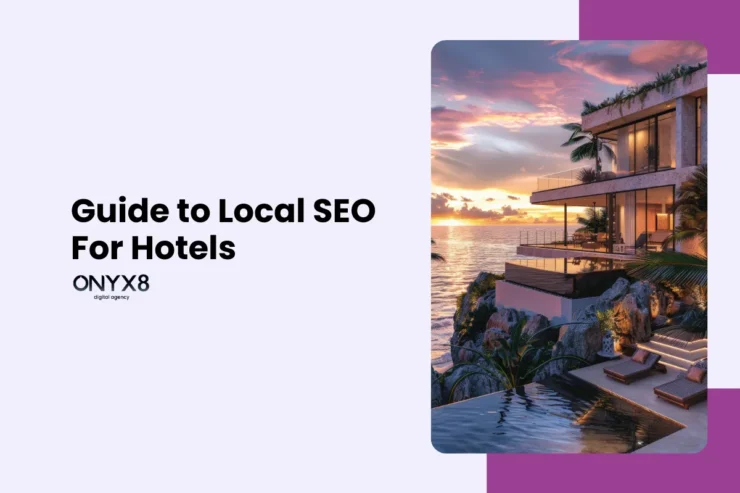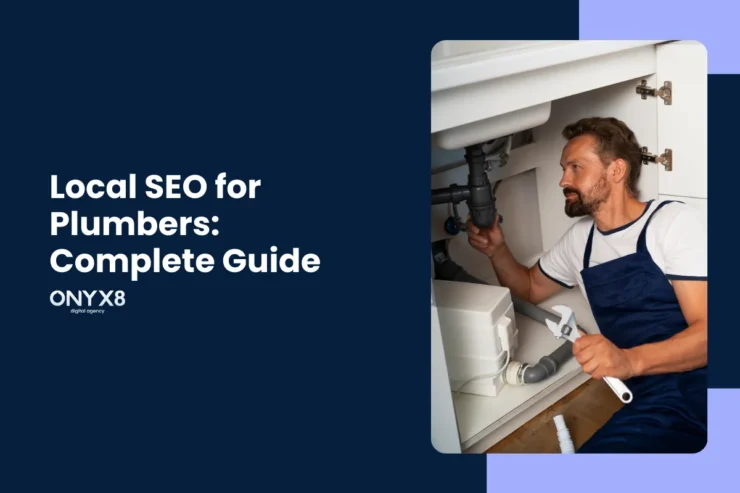Local SEO for Moving Companies: 7 Best Strategies for 2025
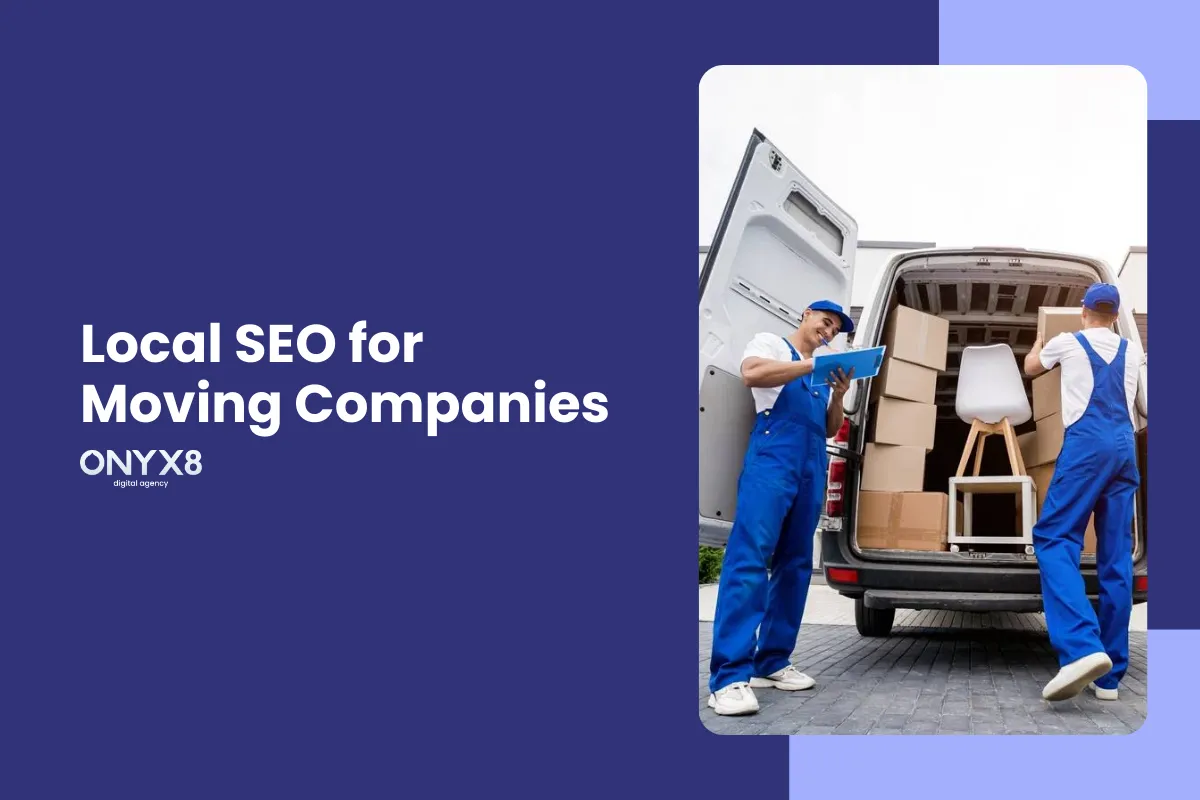
Local search engine optimization (SEO) is one of the top strategies that moving companies include in their marketing plan.
In fact, 40% of local SEO campaigns achieve a 500% or better ROI. So that’s a great option for enhancing a brand’s online visibility.
Competition in the moving industry is growing tougher. Good local SEO can help them outperform the competition.
On the other hand, 76% of potential customers visit a business within a day of searching.
With this in mind, we’ve talked with our SEO experts and broken down some strategies for implementing local SEO for moving companies.
Keep reading for a look at our proven strategies.
7 Strategies: Local SEO for Moving Companies
Did you know that 60% of smartphone users have called a business from the search results?
![Local SEO for Moving Companies: 7 Best Strategies for 2025 Local SEO on smartphone users [infographic]](https://onyx8agency.com/wp-content/uploads/2024/02/Local-SEO-on-smartphone-users-infographic.webp)
And that’s only the Google My Business (GMB) profile.
But here’s a question: “Is GMB your only acquisition channel for converting customers?“
We’ve listed some of the most practical and comprehensive strategies you can learn and implement yourself. It will give you an overview of how to promote your local services.
Let’s discuss them.
1. Optimize Your Website for Local Keywords
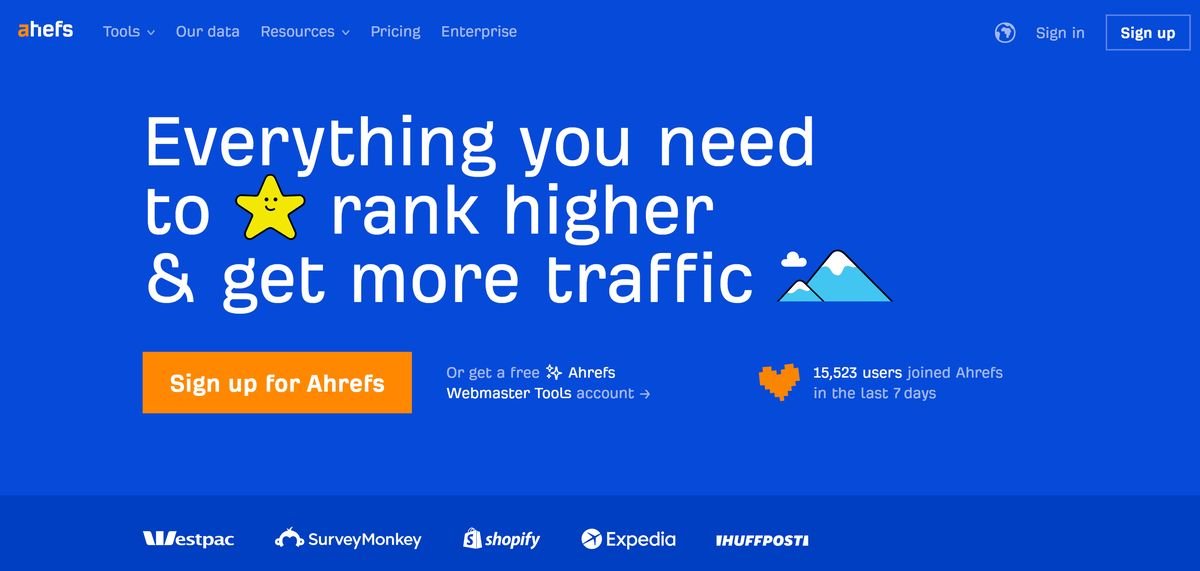
Effective local SEO starts with optimizing your website content for relevant keywords.
Local keywords, I mean!
In fact, not implementing in-depth keyword research is one of the top local SEO mistakes moving companies make.
So do extensive research and optimize your website, with the search intent of local people in mind.
For example, if your business operates across California, optimize it for California-related keywords.
This can include keywords regarding San Diego, Los Angeles, Burbank, or other city-related keywords.
But don’t overoptimize the content. It should look natural and be valuable for the users.
You can optimize moving-related local keywords in the:
- Meta titles
- Descriptions
- Headers
- And content, indeed.
Small (but helpful) Advice: Tools like Google Keyword Planner, Ahrefs, or Semrush are super helpful. They will help you find the most relevant keywords for the necessary region. Plus, you can create location-based landing pages on your website to target different areas you serve.
2. Consistent NAP Information
Name, Address, and Phone Number (NAP) consistency is crucial for local SEO.
Make sure your business information is the same on all online platforms. This includes directories, social media profiles, etc.
Take yourself, for example.
Imagine you’re searching for information about a legal company. You explore 3 different platforms to make sure they are a good company.
And surprise – you see they have different addresses in all three places.
Or, for example, their logo is the same on two platforms but it’s different on the 3rd one.
Would you trust them?
Just the same way inconsistencies can confuse search engines and affect your local search rankings.
Small (but helpful) Advice: Regularly watch your NAP information on all online platforms. Use a consistent format and ensure accuracy in every listing.
3. Mobile Optimization is a Must!
Most of the online searches happen on mobile devices.
In fact, it’s close to 60%, according to a report from Hitwise.
Plus, Google prioritizes mobile-friendly websites in search results.
So a mobile-friendly website is vitally important for today’s local companies.
Another thing to consider is mobile-responsiveness. Ensure your website is responsive, adapts to different devices, doesn’t crash, and is fast enough so users don’t abandon your website.
Plus, mobile-friendliness means a fast-loading website and a better user experience.
Small (but helpful) advice: Use Mobile-Friendly Tools to assess and see if your website is mobile-compatible. You can use this tool, for example.
4. Implement Local Schema Markup
Schema markup is one of the most powerful tools for your website today. It gives extra boost and info about your business to search engines.
Add local schema markup to your website. It gives extra brand details such as business address, phone number, and business hours.
In turn, this information helps search engines understand your content and website much better.
If you don’t have much knowledge on it, just watch the video above from Yoast. Fulfill your knowledge.
Small (but helpful) advice: Use Google’s Structured Data Testing Tool or Schema Markup Validator to implement the schema markup on your website properly.
And always keep it updated with any changes to your business information.
You may also like: Black Friday Marketing: 15 Best Strategies to Sell More
5. Build Local Citations
Local citations are the mentions of your business (or brand name) on other platforms or websites. These often include your name, address, and phone number.
Make sure your business is listed on good local directories. These include industry-specific sites and local chambers of commerce.
Small (but helpful) advice: When building citations, keep consistency. For example, don’t build 20 citations during the first month, then 5 during the second one, and then 10. Keep consistency and gradually add the number of registered business directories. 5, 10, 15, etc.
6. Implement Local Link Building
Quality links back to your moving company’s website can hugely impact your local SEO.
However, many local companies suffer from quality backlink profiles.
In fact, only 0.44% of Google searchers click on the links on the 2nd page:
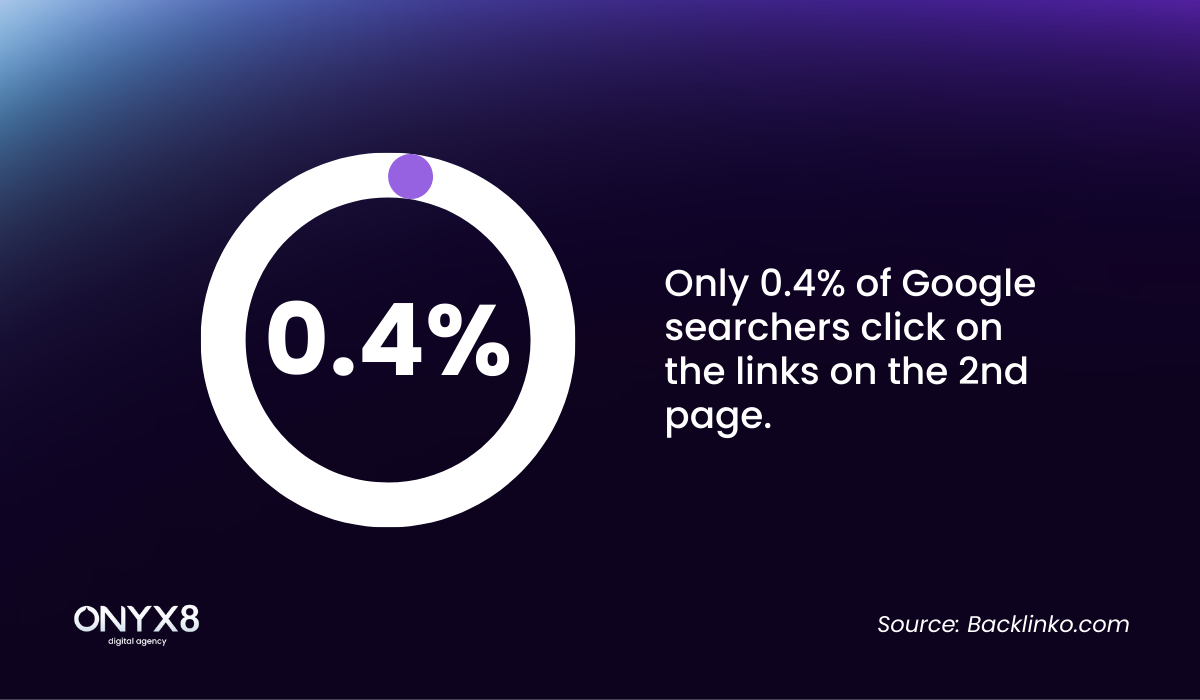
If you’re wondering how to gain local quality links, there are plenty of them.
You can get them:
- By collaborating with other businesses;
- Sponsoring local events;
- Contributing external quality articles to local publications (newspapers, journals, etc.).
Local backlinks signal to search engines that your business is valuable.
Plus, it shows that people trust your brand.
Small (but helpful) advice: Find local influencers, businesses, or organizations that match your brand. Look for chances to collaborate and trade backlinks with them. This is usually one of the best link-building solutions for a brand.
7. Monitor and Analyze Your Local SEO Performance
Regularly monitoring and analyzing your local SEO performance is crucial for ongoing success. Use tools like Google Analytics and Google Search Console.
Also, use local rankings tracking tools. Use them to measure your website’s performance and track keyword rankings. They will help you find areas to improve. Stay informed about changes in local search algorithms and adjust your strategy accordingly.
Small (but helpful) advice: Set up regular reports in Google Analytics to track key metrics. These include organic traffic, keyword rankings, and user engagement. Use the insights gained to refine and optimize your local SEO strategy.
How Onyx8 can help with Local SEO for moving companies
Use these local SEO strategies to boost your online performance.
But be aware that the visibility should resonate with your local audience. For moving companies, the significance goes beyond just being seen. It’s about becoming a trusted resource in the communities you serve.
Above all, local SEO helps build your brand.
However, building a positive online reputation requires time, knowledge, and commitment.
For moving companies, it’s about establishing trust within the communities you serve.
Now you understand the key SEO strategies for moving companies. Consider using them.
You can also do this by teaming up with our SEO experts. Our team at Onyx8 Digital Agency offers complete SEO solutions. They help clients grow their brand and awareness, tailored to specific business needs.
We generate custom quotes for every project. Contact us to set up a free consultation, tell us about your project, and meet our SEO team!


